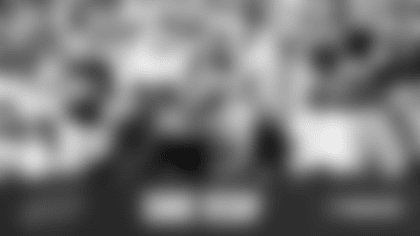A hush fills the stadium as the huddle breaks and the quarterback steps up to the center. His concentration is intense as he reads the defense with precision, focus, knowing exactly what to look for. Satisfied, he calls out, "Blue 42… Blue 42… Set. Hike!" Dropping back three steps, he fires the ball into the end zone, connecting with Sammy Watkins for the touchdown. Fans in the stadium erupt in a stampede-like rumble. Everyone's attention shifts to the quarterback, admiring a job well done.
But how did he know what to look for? How to read the defense — split their pass coverage and score? While the fans and media see only what happens in four quarters played on the field, there is far more to the quarterback behind the scenes. The reality is that a strong mind is as crucial to winning as a strong arm is to throwing. Consequently, training off the field to strengthen a player's mental prowess could be the difference between the huddle or the bench, a first-down or a fumble, and six-points on the board or an interception.
Every position has its own distinct demands requiring work off of the field — but it's more than just work in the weight room. If there is a formula for success it would include equal parts brawn and brains. Thus, insightful work in the film room is critical, and no player spends more time with their eyes riveted to the screen than the quarterback.
"Those guys work in the film room more than anybody," said Bills head coach Rex Ryan. "They spend hours together in the film room because (the position) is unique that way. You have to know the entire balance of the offense and why we're doing things.
"You have a quarterback coach in David Lee and it's non-stop. Those quarterbacks are pretty much married to David Lee. That's just the way it is."
A solid relationship between the quarterback and his position coach is not a luxury; it's a necessity and essential to success. If you're going to be the guy to drive your team down the field and score, then your coaches need to have trust in you from the minute you walk out of the film room to the last snap of the game.
As a quarterback, your responsibility is not only to review your own work, but the entire offense as well. That means an honest examination of the ins and outs of every play, what to do in every possible scenario, and ultimately how all 11 men are going to work together.
"When we go in there and we watch the film and we break it down, we start with the play obviously," said QB Matt Cassel. "What's the foundation of the play, what are we trying to get accomplished?
"From there you're critiquing yourself, your mechanics and at the same time, did we go to the right place with the ball? Was it a mental error? Should we have gone somewhere else? So there's always that critique of the play."
For Bills quarterback, Matt Simms, the situation is different. As the fourth quarterback his critique of the play comes from watching his fellow quarterbacks on practice tape.
"Right now, for me, since it's probably my 18th day being a Bill on the field, really it's just constant review, constantly watching the other quarterbacks. Seeing what they do," he said. "The good things that they do, the things we need to correct and just going over it over and over and repeating it."
Knowing it's a new offense for every one of Buffalo's quarterbacks likely requires them to invest even more time than for an entrenched starter who has been running the same offense for several seasons.
The details and nuances of a new scheme aren't absorbed overnight. It takes countless hours of binge-watching game film, day in and day out — often times soaking in the same play over and over again.
"That's what they do," said Ryan. "They'll review plays more times in a row, or they'll go back at night and review it some more."
Quarterback, Tyrod Taylor has his own routine once he steps off the field. After the team breaks from practice and the quarterbacks finish their meeting, he takes a few minutes of down time and gets right back to work.
"I go through the next day's script and I write down everything on the script, every play, my assignments and everyone else's assignments," said Taylor. "Then I go back to review it, go through the notes and I watch a couple plays of practice and some of the stuff that we didn't hit and try to continue to keep going.
"Then I get ready for the next day. Writing down notes and something from the previous practice. Stuff that I think I can take with me and work on for the next day."
The details and routine a quarterback develops to prepare for game day aren't absorbed overnight. Instead it's a clear case of the old cliché, 'What you put into it is what you get out of it.'
"It could be 10 times to be honest with you," said Cassel as to how many times he'll review a single play. "There are multiple people doing multiple things on every play obviously and sometimes you're watching how the play develops, you're also then going to review — what'd the X-(receiver) do here? How'd he release? Can we do something better? So that's all part of that film study."
Watching film is a craft and every quarterback has to learn and refine it if they want to be successful on the field. It's a learning process that requires intelligence and strong memory retention. And though the quarterback's focus is often on his own play and decision making, in the end the offense's performance as a whole takes top priority.
"You just have to put your ego and pride to the side and play smart and do what's best for the team," Simms said. "Sometimes that's tough because as quarterbacks we always think that we can make the great play and do these great things… But every now and then, just winning the small battles will win the war for you."






